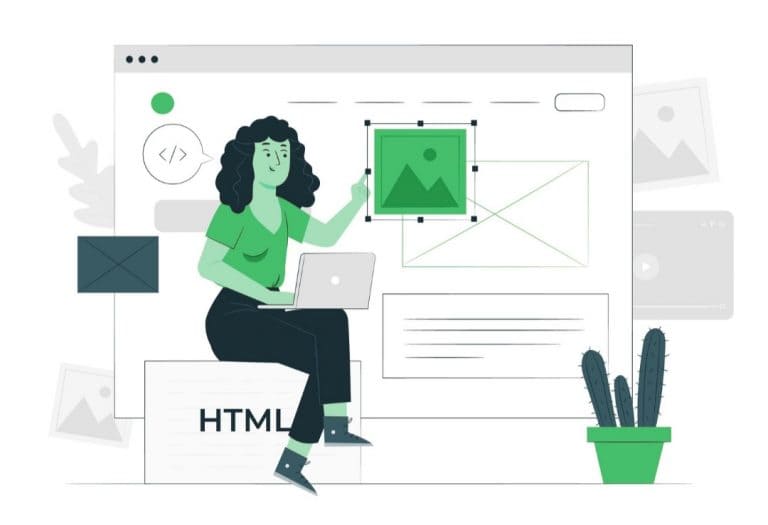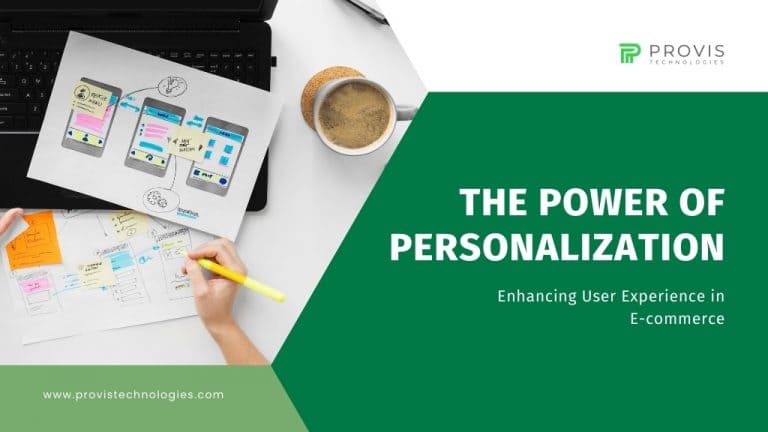In today’s modern times, consumers have endless choices for every product. Business is not that easy in such circumstances. However, with every challenge comes an opportunity with a solution. In this case, personalization has emerged as a powerful solution for e-commerce owners to stand out and make sales & brand identity. Tailoring product recommendations & offers based on individual preferences enhances the user experience and ultimately drives engagement. Let’s dive into the transformative power of personalization in e-commerce and learn strategies for leveraging it to the fullest potential.
Understanding Personalization in E-commerce

Personalization in e-commerce refers to delivering custom experiences to individual users based on their unique preferences and past interactions with a brand. This can encompass vivid aspects – like product recommendations, targeted promotions, personalized emails, and customized content. The goal is to create a more relevant and engaging experience for every user in a way they can relate to.
Read More: Tips for Launching Your E-commerce Journey with WooCommerce
The Benefits of Personalization

Personalization offers a pack of benefits for both businesses & consumers:
Improved User Engagement
Personalized experiences capture user attention and encourage them to interact more with a brand, which leads to increased site retention time spent and click-through rates.
Higher Conversion Rates
By presenting users with products & offers that align with their interests – personalization can significantly increase the likelihood of conversion. The benefit of higher sales and revenue for your businesses.
Enhanced Customer Satisfaction
When users feel valued by a brand, they are more likely to have a positive experience and develop a sense of loyalty, leading to repeat purchases and word-of-mouth referrals.
Must Read: The Future of E-commerce: Embracing SaaS Solutions
Increased Customer Lifetime Value
Personalization enables businesses to build long-term customer relationships by continually providing relevant experiences. It ultimately enhances customer lifetime value and maximizes the return on investment.
Strategies for Implementing Personalization

To effectively harness the Power of Personalization User Experience in E-commerce, businesses can use these strategies:
Data Collection & Analysis
Gather user behavior, preferences, and demographics data through website analytics, purchase history, and user interactions. Analyze this data to identify patterns for creating personalized campaigns.
Segmentation
Divide your audience into segments based on demographics, browsing behavior, purchase history, and engagement level. Use segmentation to tailor messages and offers to the specific interests of each segment.
Product Recommendations
Implement algorithms that analyze user behavior to generate personalized product recommendations. Display these recommendations prominently on your website, in email campaigns, and during checkouts to encourage additional purchases.
Read More: Why is 2024 a Great Year to Start Your E-commerce?
Dynamic Content
Create dynamic website content that adapts based on user attributes and actions. Personalize product listings, homepage banners, and promotional messages to reflect users’ interests & browsing history.
Behavioral Targeting
Serve targeted ads & promotions according to user behavior. Retarget users who have abandoned their carts or browsed specific products with personalized offers to stimulate them to complete their purchases.
Email Personalization
Customize email communications with users by addressing them by name, referencing their past purchases, and recommending products or promotions based on their preferences. Use automation tools to send personalized email campaigns at optimal times for maximum impact.
Read More:- Color Palette Generators for Website
The Future of Personalization in E-commerce
As digitization evolves, personalization in e-commerce will grow, too. Innovations like AI/ML and predictive analytics will enable businesses to deliver even more relevant user experiences – driving business results.
Bottom Line
With the power of personalization to tailor experiences to individual users, e-commerce businesses can differentiate themselves in a crowded marketplace. They can build strong customer bonds and drive sustained growth in today’s competitive space. If you need help with e-commerce, connect with top e-commerce developers like Provis Technologies.
FAQs
Personalization in e-commerce involves tailoring experiences for individual users based on their unique preferences and past interactions. It’s like setting custom product recommendations and offers for each customer.
Personalization improves user engagement, increases conversion rates, enhances customer satisfaction, and boosts customer lifetime value by delivering relevant & valuable experiences tailored to individual users.
E-commerce businesses collect and analyze user behavior, preferences, demographics, and purchase history data to help set personalized recommendations, segmentation, and targeted marketing campaigns.
E-commerce businesses can implement personalization strategies such as data collection & analysis, segmentation, dynamic content, product recommendations, behavioral targeting, and email personalization to customize experiences for individual users.
AI/ML & predictive analytics – such techs enable e-commerce businesses to deliver sophisticated and relevant personalized user experiences to increase engagement & conversion.
As technology continues to advance – personalization in e-commerce will grow. Innovations like AI enable even more sophisticated and relevant experiences tailored to individual users’ needs & preferences.
There are many top e-commerce developers – Provis Technologies is one of the best e-commerce development companies.
Written By
Author's Picks
- WooCommerce Features List: Must-Have Features for Growing Your Store
- 17/12/2024
- The Impact of AI Integration on Mobile App User Experience
- 06/11/2024
- Chatbots in E-commerce: The Future of Customer Support is Here
- 30/09/2024
Categories
- AI for Startups
- AI in Web Development
- AI Integration
- AI Platforms
- AI Prompt
- AI Tools
- AI Trading Software
- Android App
- Android vs iOS Development
- Angular
- API
- API Development
- App
- app development
- App Idea
- App User Feedback
- Application
- Artificial Intelligence
- Audit Services
- Automotive Industry
- Awards and Recognition
- Business Consulting
- Business Website
- Chatbots
- CRM
- CRM for Financial Advisors
- Custom CRM
- Custom SaaS
- Custom Website
- Customer Service
- dashboard design
- Developing a Mobile App
- Digital Business
- E-commerce
- EMR Integration
- Finance
- Financial Advisors
- Financial Advisors
- GIT
- Health Insurance
- iOS App
- iOS App Development
- IoT Mobile App Development
- IoT Platforms
- IT Audit Services
- IT Consulting
- IT Strategies
- Java Development
- Laravel
- Lean Canvas
- Learning Management System
- Logistics Apps
- Mobile App Development
- MVP
- Native App
- News Aggregator Site
- OTT
- Outsourcing IT
- Payment Gateway
- predictive analysis
- Product Launch Strategy
- Progressive Web App (PWA)
- Prototype
- Recommender Systems
- Ruby
- SaaS
- SaaS Application
- SaaS Business
- SaaS Company
- SaaS Development
- SaaS Product
- SaaS Project
- Sales Funnel
- SEO
- Shopping Cart
- Software Development
- SSL and TLS
- Startup Checklist
- Technology
- Tetradic Color Scheme
- UI/UX Design Company
- Unit Testing
- User Flow
- User Testing
- Web Development
- Web Performance Optimization
- website Maintenance Services
- Website Migration Service
- Website Speed Optimization
- WooCommerce
- WordPress





